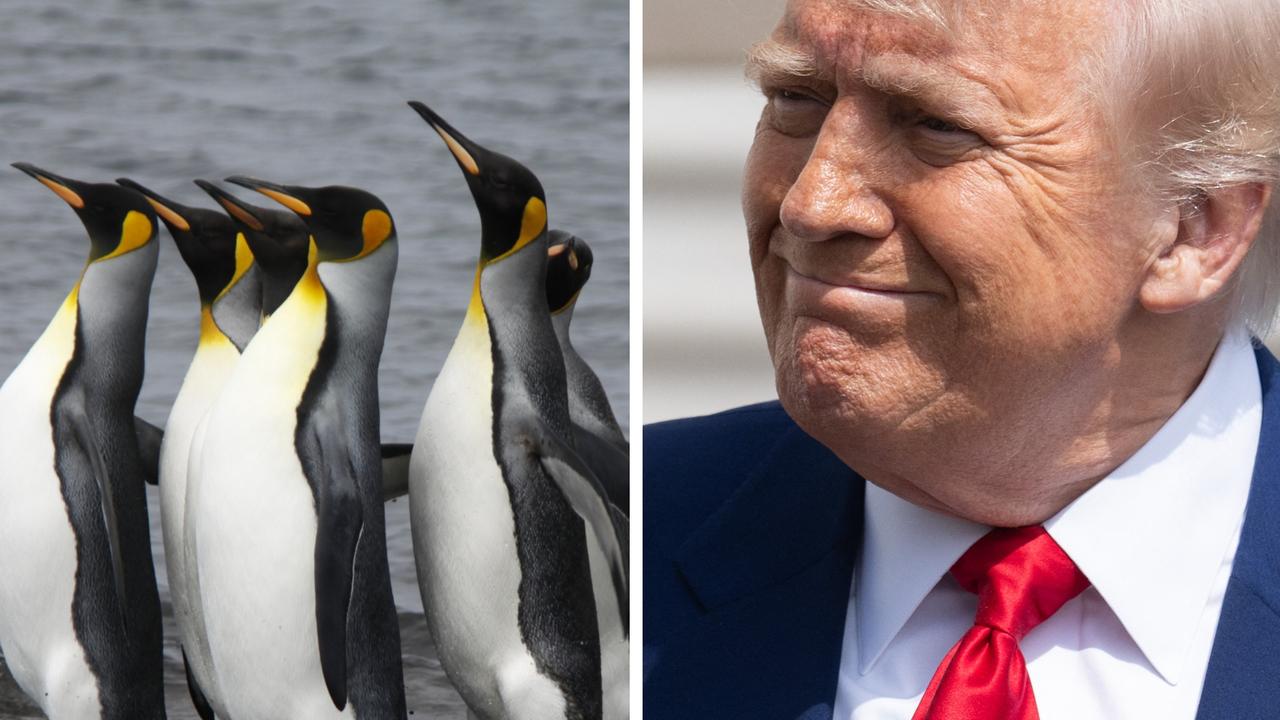Big change coming to yellow recycling bins
There are grand plans in place which means what we put in our yellow bins could be about to change dramatically.
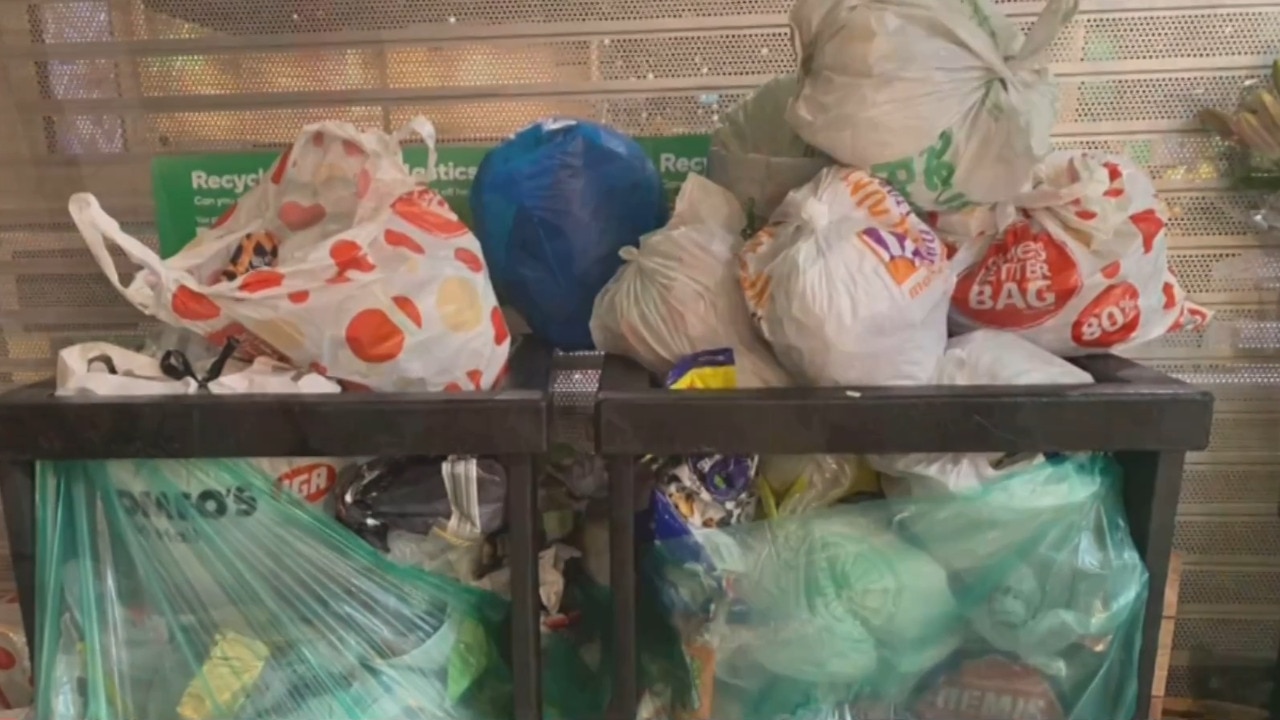
Sustainability
Don't miss out on the headlines from Sustainability. Followed categories will be added to My News.
There are grand plans in place which could change the way we dispose of soft plastics nationwide.
The collapse of the REDcycle recycling scheme in November 2022, which used to allow people to take their soft plastics to supermarkets to be recycled, has seen a big hole appear in Australia’s recycling push.
Now there is movement towards soft plastics being able to go into yellow bins so they can be turned into packaging.
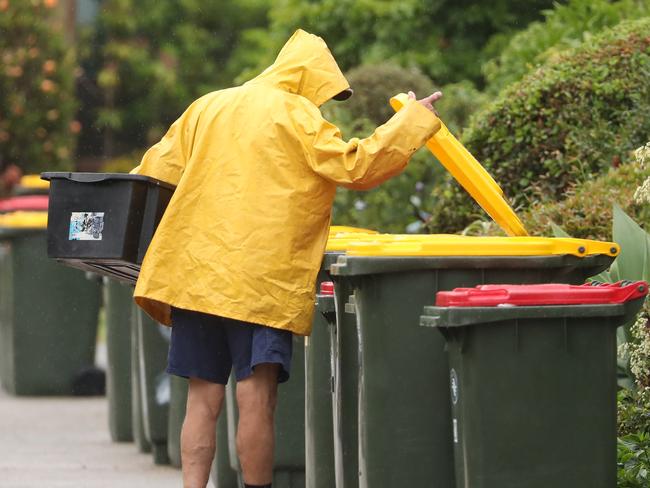
One company leading the push is Curby, which collects soft plastics from yellow bins in several council areas. Curby allows people to put soft plastics using special yellow bags and tags which can then go into kerbside yellow bins to be recycled.
With new and highly advanced recycling technology this soft plastic is then turned back into food-grade plastic.
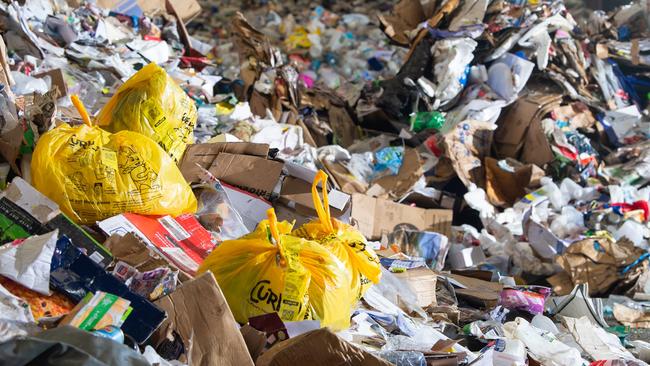
In March 2022, Nestle announced it was working with Curby to produce recycled wrappers for 40 million KitKat bars in the coming year.
But it’s not all been plain sailing.
“There are two challenges,” said Margaret Stuart, Nestle’s director of corporate affairs and sustainability. “The first is collecting enough soft plastics from consumers. Even REDcycle was only collecting about 2 per cent of soft plastic used. Second is processing capability.”
Despite the technology being available, there’s not a processing plant in Australia that could accept and recycle the amount of soft plastic we produce.
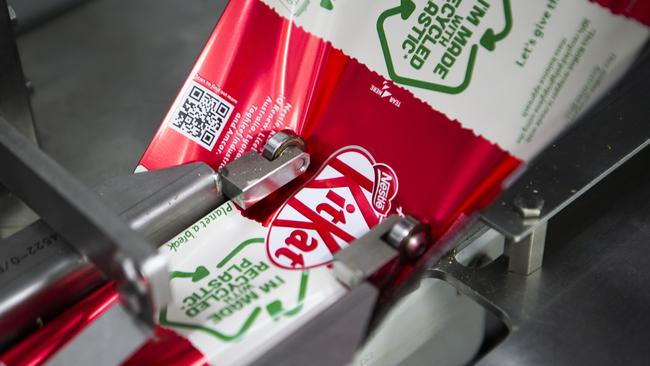
It means it’s not yet possible for Nestle to replicate the recycled KitKat wrapper across all its brands.
This is where a new National Plastic Recycling Scheme led by the Australian Food and Grocery Council (AFGC) comes in. Working towards targets to phase out single use plastic packaging by 2025, it has been addressing the collection challenge by putting together a scheme for kerbside soft plastic pick-up.
“There are 500-plus councils over the country and there’s huge amount of complexity involved in designing a collection scheme,” Tanya Barden, CEO of AFGC, said.
“Nestle was the genesis and proved it could be done. Now we have to scale this up and we have the industry behind us. So many categories are involved and they’re putting their hands in their pockets to contribute to this next stage.”
Trial phases have already been rolled out across the country with 10,000 households across six council areas involved. Families from Adelaide and Melbourne city councils as well as Albury and Macedon Ranges have been collecting soft plastics in a bag and disposing of them in their yellow bins.
“We looked at return to store options but we need to make it convenient and cost effective,” Ms Barden said, explaining why this route was chosen.
An audit of results is due any day but Ms Barden said the response from councils and consumers had been “overwhelmingly positive” and pilot schemes involving significantly more households are the next stage.
With soft plastic collection underway and brands on-board to use the recycled plastic in their packaging, the only remaining bottle neck is the processing but Ms Barden says with the building momentum, multiple organisations are looking at investing.
“We’re building a whole new supply chain,” she said. “It will gradually grow as capacity develops.”
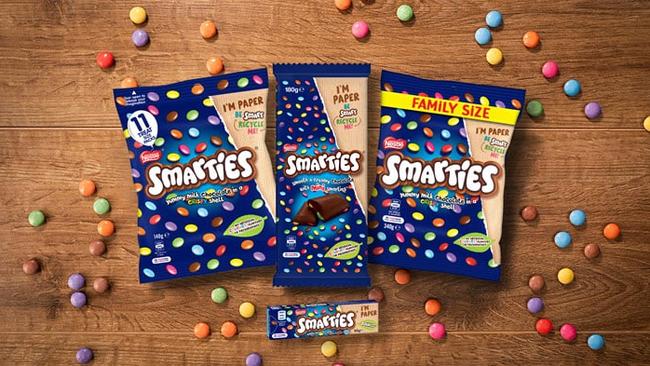
In the meantime brands like Nestle are looking at other types of packaging.
“Smarties have all moved to paper-based and we’re trialling a paper wrapper around KitKats to see how that works,” Stuart said. “We are changing the shape and size of packing to make it easy to sort.
“You don’t want any small bits that tear off and fall through the gaps and colour is important too. Anything carbon black can’t be recycled.”
However, soft plastics are likely to remain an important part of the industry given their ability to keep food fresh for longer.
“There’s no silver bullet for packaging,” Ms Barden said. “Food has high requirements for safety and hygiene and you don’t want the reverse outcome of food waste [if soft plastic is removed]. We have to keep working on the solution.”
Emma Levett is a freelance writer.
Originally published as Big change coming to yellow recycling bins




